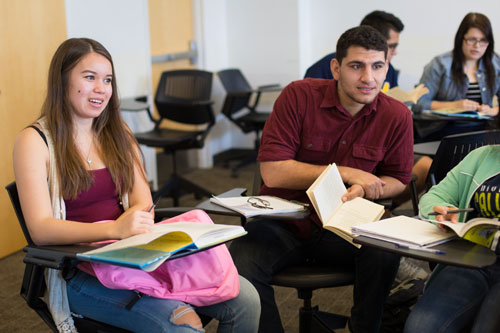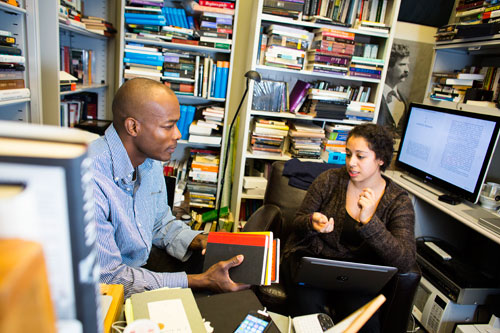Overview of English
 The study of literature enables one to engage these conversations richly, both for personal development and for the ability it gives one to be a responsible agent in the many societies each person inhabits.
The study of literature enables one to engage these conversations richly, both for personal development and for the ability it gives one to be a responsible agent in the many societies each person inhabits.
Moreover, literary study gives one insight into how cultures operate in such a way as to facilitate ethical cross-cultural interactions. Literary study facilitates such agency by teaching readers how to understand — an understanding that engages intellectual, ethical and aesthetic faculties — and then critique literary artifacts.
About the Program
The major and minor in English at the University of California, Merced, ask students to recognize the complex interactions of culture and literature. Literature and literary criticism are significant parts of an age-old, continuing conversation about the meaning and value of human society. So we think about the way artists and thinkers across centuries have used literature to ask big questions, tell stories and create beauty.
Areas of Research
- Literature and humor
- Medieval and Renaissance drama
- Performance theory
- Mark Twain
- Literature and culture of the Great Depression
- American nature writing and literature of the environment
Potential Careers*
- Social media manager
- Technical writer
- Public relations specialist
- Lawyer
- Marketing communications manager or director
- Librarian
- Journalist
- Editor
- Teacher
- Feature film/television story developer
- Writer
* Please Note: Some of these carers might require education beyond a Bachelor's degree.
 Learning Outcomes
Learning Outcomes
Students graduating from the English program demonstrate the following:
- Interpret texts with due sensitivity to both textual and contextual cues.
- Articulate an appreciation of the aesthetic qualities of texts by the standards of their times and places.
- Demonstrate historical, geographic, and cultural empathy by reading texts written in other times, places, and cultures.
- Apply interpretive strategies developed in literary study to other academic and professional contexts.
- Write cogently and with sensitivity to audience.

